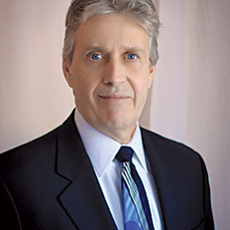
The Medicare decision to pay doctors to discuss end-of-life planning with patients is long overdue. As caregivers, you know far too many people endure painful, unnecessary medical treatment at the end of their lives.
Most people would not choose this for themselves, yet if wishes are unknown, loved ones of patients typically accept every type of care offered, often not understanding it will not prolong or enhance life. Recently a report from The Institute of Medicine said, “A lack of an end-of-life plan, created well in advance, typically leads to prolonged hospitalization, soaring medical bills and unnecessary pain and suffering for everyone.”
When patients have not created a well-crafted end-of-life plan and shared with family and providers, problems frequently ensue. Families are often left to guess at what a loved one would have wanted. Without guidance siblings, surviving spouses or partners are asked to make critical decisions during a very emotional and stressful time. Many times this can lead to divisiveness within the family, making a caregiver’s job even more difficult.
Imagine the benefits of knowing the care your patient desires. No more wondering what you should do in difficult circumstances. No more multiple, often contradictory, instructions from family members. Instead of doubt you can feel peace, knowing you are honoring the wishes of your patient.
That’s why you should encourage your patients to take advantage of this new Medicare rule and share their wishes with family and all providers. Encourage patients to initiate the conversation themselves and consider, document, and share their end of life wishes immediately.
Consider: How many ambulance trips per year involve patients with advanced dementia presenting to emergency departments? Of these, what percentage of visits do nothing to enhance quality of life? These situations put families and caregivers in the position of having to do things most of us say we would not want. Long-term care experts are skilled at predicting the outcomes of common medical events that can be treated. The tough part is wondering if each one should be treated. Is this what the patient would want? As we know, the decisions that cause agony in families every day go far beyond what is contained in the Advance Directives guidelines in most states.
These are just some examples of how having patients prepare for these conversations saves emotional trauma and/or money on unnecessary or unwanted care. A 2009 study found that costs were 35.7% lower for patients who had formal end of life discussions involving medical caregivers and family compare with those who had not. That eases the burden for both the patient’s family and society in general.
A program such as our Final Roadmap will help guide everyone through the process of end-of-life planning. It will give them the appropriate questions and scenarios to consider. After going through the program, patients are better informed and more equipped to have knowledgeable conversations with their medical providers. That means providers can confidently work with their patients knowing they are following the desires of the individual.
The hope is by paying for these conversations Medicare encourages beneficiaries to think through the end of life, or the time when they cannot speak for themselves, well in advance of needing to do so. As important advocates for the elderly and infirm, LTC professionals play a critical role of introducing their community members to the benefits of considering and communicating end of life wishes as early as possible. Introducing individuals and families to the topic and helping them anticipate and navigate end of life is an invaluable service.
Steve Byrne is the co-founder of Final Roadmap, a guide and toolkit for end-of-life issues.




